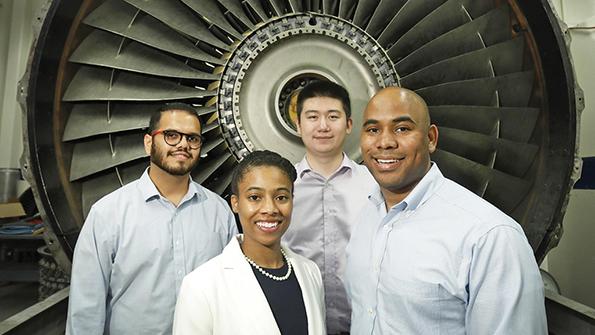
A silver lining glints on the horizon for the aviation industry. In the commercial lull of the pandemic, investors and entrepreneurs are fixing their eyes on the future to seize opportunities to push aerospace technology forward. As industry leaders have pointed out in Aviation Week panels, defense and commercial space innovators are still hiring, and air mobility enterprises have attracted private equity investors. We also see smaller companies aggressively hiring to establish themselves as midtier providers.
In addition to producing the workforce of tomorrow, a university’s contribution to our industry’s recovery is to provide an environment where academia, industry and entrepreneurship can create mutual benefit that translates into new products, services and solutions. Smaller, streamlined companies have the advantage of agility. When they can reinforce their capacity for speed and adaptation by tapping the resources of partnerships, everyone can potentially win: students, entrepreneurs, researchers and customers/consumers/end users. Successful business clusters in places like Boston, Silicon Valley and Austin, Texas, all have entrepreneurial-focused universities nearby.
At many universities, resident entrepreneurs provide an invaluable learning lab for students planning start-ups as well as those who will apply their creative thinking and business savvy to “skunk works” at aviation and aerospace giants. A co-located research park can be a proving ground for possibilities, allowing the next wave of leaders to gain experience beyond solving technical challenges—learning to maneuver the demands of financing, managing intellectual property, reviews and approvals, marketing and establishing a supply chain.
One such innovator, VerdeGo Aero, recently moved to build market share and increase name recognition in a rapidly emerging aviation sector. Company CEO Eric Bartsch and Executive Chairman Erik Lindbergh teamed up with Embry-Riddle Aeronautical University to develop and commercialize patent-pending technology designed to mitigate electric aircraft noise.
Although electric aircraft promise reduced carbon emissions, fossil fuel use and operating costs, the propellers or rotors can be relatively noisy. Traditionally, electric aircraft rotors can spin faster to gain efficiency while also increasing noise levels, or spin slower and be less efficient but quieter. The technology now being commercialized by VerdeGo Aero would automatically adjust the pitch of rotating propeller blades while also adjusting motor torque to maintain constant thrust. This approach makes it possible to reduce noise or increase efficiency, while maintaining substantially constant thrust, altitude and airspeed. Using the new technology, electric aircraft could be designed to operate most efficiently once they are at cruising altitude, where noise abatement may be less of a concern, then switch over to a lower-noise mode as they descend over urban areas.
Another entrepreneur, Reamonn Soto, a U.S. Marine Corps veteran, was wrapping up his master’s degree when he had a big idea that could save gas turbine operators millions of dollars annually. To build his business, Sensatek Propulsion Technology, Soto took advantage of incubator space at Embry-Riddle’s Research Park, which has forged partnerships with private industry as well as local, state and federal policymakers and agencies.
The Sensatek business model—licensing patented wireless sensor technology to increase the operational reliability and performance of jet engines and high-temperature process flow applications—proved appealing to an array of investors. Soto’s funding from all sources now stands at more than $4.5 million. His innovation, based on entrepreneurial out-of-the-box thinking, created high-paying new jobs.
Universities rely on industry support to help entrepreneurs like Soto achieve liftoff. For example, Launch Your Venture incentivizes Florida university students to refine their best startup ideas for changing the future of aviation, aerospace and engineering. Another competition, the TREP Expo, puts would-be aerospace entrepreneurs on a ladder to success and greater support. In 2017, Soto qualified in the TREP Expo to compete in Launch Your Venture, which he won, garnering a much-needed $10,000 for his business.
Businesses like Sensatek and VerdeGo Aero—encouraged by strong industry partnerships—also help add value to graduates as they enter the workforce. Just as engineering is applied science, entrepreneurship is applied talent, fusing technology and business to put ideas at our service.
P. Barry Butler is president of Embry-Riddle Aeronautical University.





